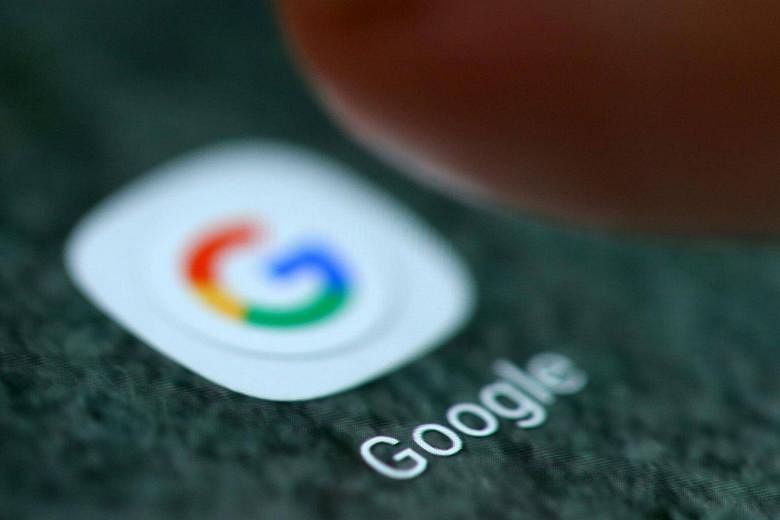Pressure has been growing in the past few weeks for politicians and regulators to clamp down on the monopoly power of Big Tech.
In a speech given in Washington last Tuesday, Ms Maureen Ohlhausen, the acting chair of the Federal Trade Commission (FTC) in the United States, tried to pour cold water on the idea.
"Given the clear consumer benefits of technology-driven innovation, I am concerned about the push to adopt an approach that will disregard consumer benefits in the pursuit of other, perhaps even conflicting, goals," she said.
Her words echo US anti-trust policy of the past 40 years: If companies bring down prices for consumers, they can be as big and as powerful, economically and politically, as they want to be. This hugely favours companies such as Google, Facebook and Amazon, which offer up services and products, from search results to self-publishing platforms, that are not just cheap, but free.
Yet Ms Ohlhausen is overlooking a key point: Free is not free when you consider that we are not paying for these services in dollars, but in data, including everything from our credit card numbers and shopping records, to political choices and medical histories. How valuable is that personal data?
It is a question of growing interest to everyone from economists to artists. For example, at Datenmarkt, an art installation-cum- grocery store set up in Hamburg in 2014, a can of fruit sold for five Facebook photos; a pack of toast for eight "likes", and so on.
The bottom line is that it is almost impossible to put an exact price on personal data, in part because people have widely varying behaviours and ideas about how likely they are to part with it, depending on how offers are posed. In one recent study, when consumers were asked straight out whether they would consent to being tracked by a brand-name digital media firm in exchange for being targeted with more "useful" advertising, four-fifths said no.
Yet another study published this year by researchers from Massachusetts Institute of Technology and Stanford University shows how pathetically little incentive is required to convince people to give up their entire e-mail contact list. Students in the study were far more likely to do it if offered a free pizza.
One might argue that this is simply the market working as it should. Consumers were given a choice, and they made it. And whether or not it was a bad one is not for us to judge.
But as the latter study also showed, companies can nudge users to part with data more freely by telling them it will be protected by technology designed to "keep the prying eyes of everyone from governments to Internet service providers... from seeing the content of messages". In fact, the encryption technology in question could not guarantee this.
The bottom line is that big data tilts the playing field decisively in favour of the largest digital players themselves. They can extract information and plant suggestions there that will lead us to entirely different decisions, which result in ever more profit for them.
Not only is that too much power for any one company to have, but it is also anti-competitive and market-distorting in the sense that the basic rules of capitalism as we know it are being overturned. There is no equal access to market information in this scenario. There is certainly no price transparency.
The personal data we give away so freely is being lavishly monetised by the richest companies on the planet (Facebook's second-quarter operating margin, for example, was 47.2 per cent). They get their raw material (our data) more or less for free, then charge retailers and advertisers for it, who then pass those costs on to us in one form or another - a dollar more for that glass of wine at the bistro you found via a search, say.
They have a licence to print money, without many of the restrictions, in terms of all sorts of corporate liability, that other industries have to grapple with.
These companies are not so much innovators as "attention merchants", to borrow a phrase from Columbia University law school professor Tim Wu. Economists have yet to put good figures on their net effect on productivity and gross domestic product growth. Surely it is high.
Yet any tally would also have to include the competition costs as these firms devour competitors and reshape the 21st-century economy to suit themselves.
Whatever the FTC might say now, there are a growing number of legal cases that could change the ground rules for Big Tech.
While American anti-trust law has been based on very literal interpretations of the 1890 Sherman Act, lawmakers in Europe take a broader approach. They are trying to gauge how multiple players in the economic ecosystem are being affected by the digital giants.
I am beginning to wonder if we should not all have a more explicit right not only to control how our data is used, but also to any economic value created from it.
When wealth lives mainly in intellectual property, it is hard to imagine how else the maths will work. We are living in a brave new world, with an entirely new currency. It will require creative thinking - economically, legally and politically - to ensure it does not become a winner-takes-all society.
FINANCIAL TIMES

